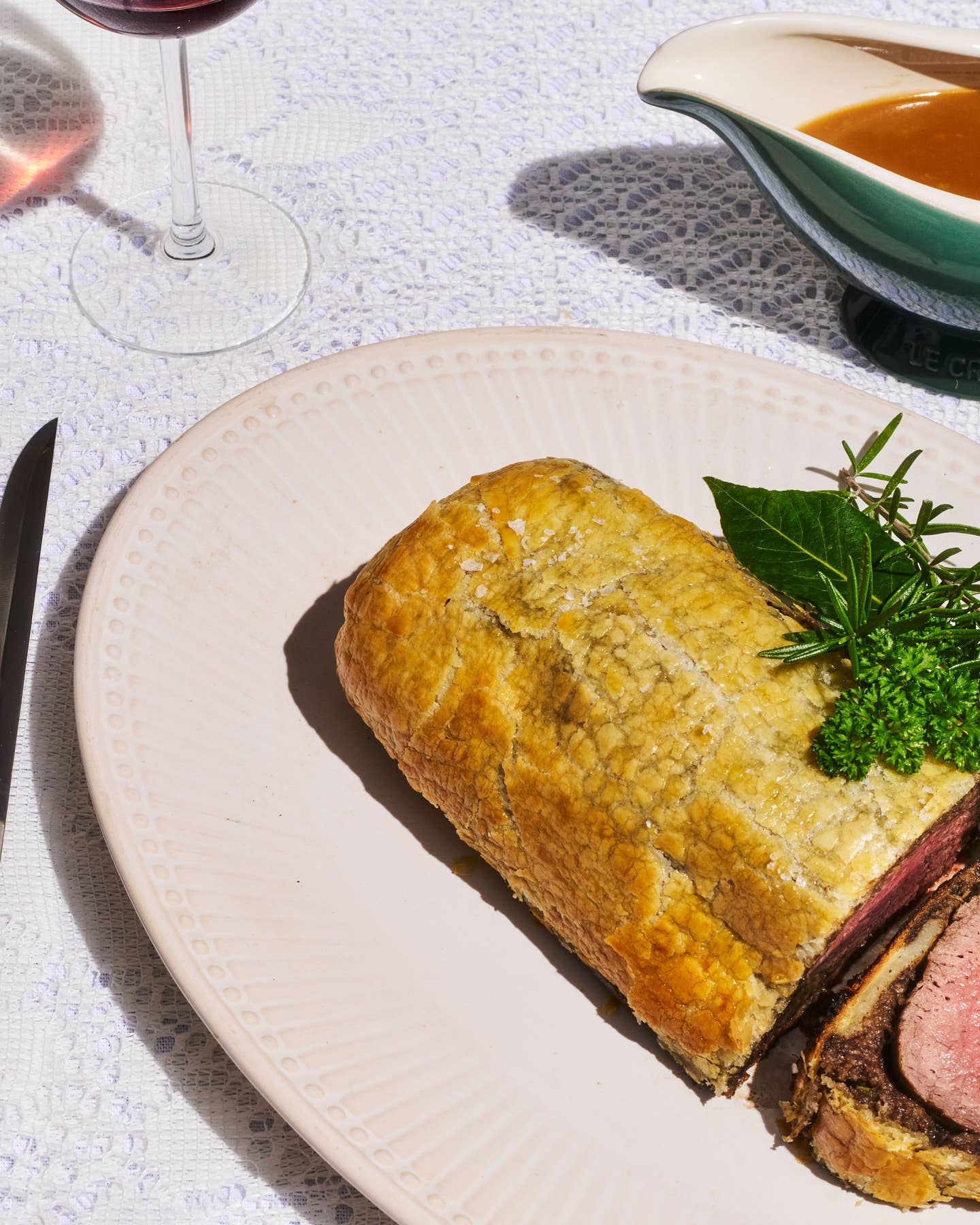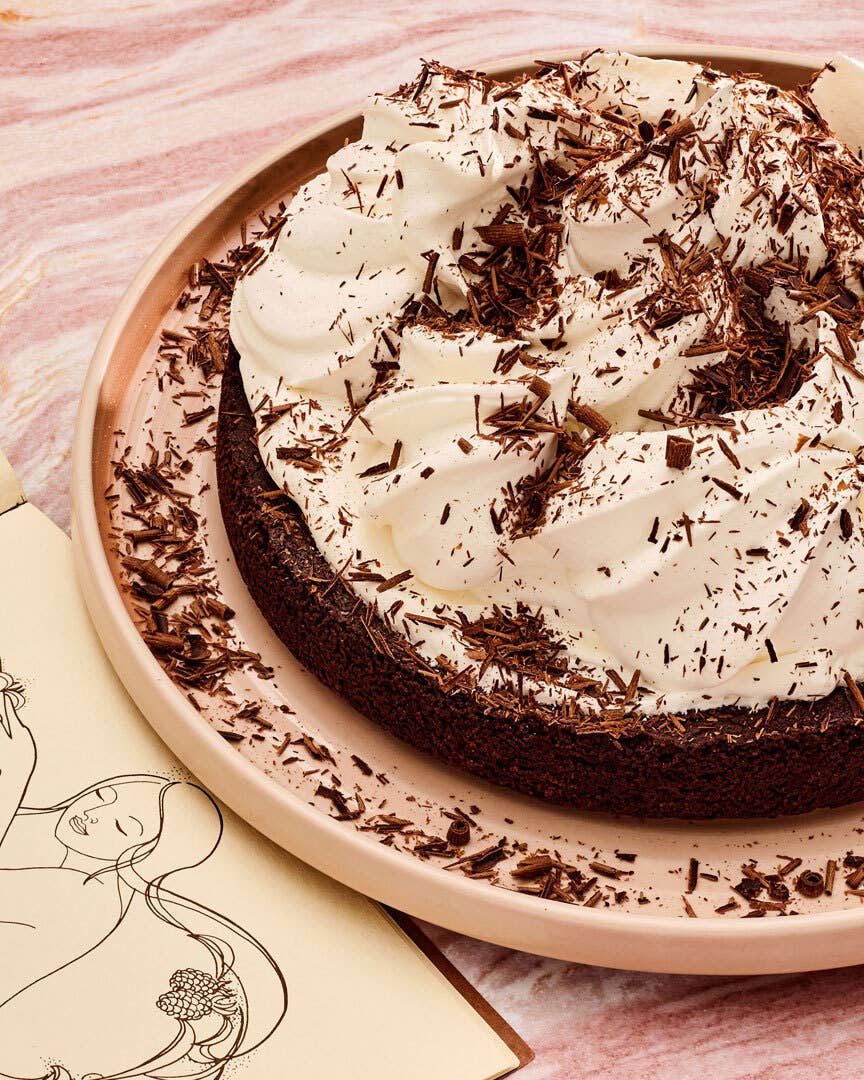
My husband and I were driving east on the Long Island Expressway early last December, heading for a holiday weekend with old friends. I was reading Truman Capote's A Christmas Memory aloud, a ritual we share every year around this time, hoping to set the right tone and mood for the season. The story always chokes me up. Because I am shy about being emotional, I kept my head down, my hair hiding my face, as I read. Sure enough, tears soon welled up in my eyes, and my voice got all funny. Then, a strangled little sob slipped out.
Capote wasn't exactly one to write a sentimental tearjerker—and he didn't do so here. But his memoir of making fruitcakes with his elderly cousin in rural Alabama, sharing the excitement of Christmas with her, is so rich in texture and emotion, so true, that it's heartrending in spite of itself.
Every year, just after Thanksgiving, writes Capote, his cousin would wake up and officially announce, "It's fruitcake weather!" Out would come the fruitcake fund, a year's collection of dimes and nickels, and off the two friends would go to collect the ingredients: candied fruits—cherries, citron, ginger, canned pineapple, raisins—vanilla and other spices, butter, and walnuts. They'd pay a visit to Mr. HaHa Jones, the local bootlegger, for the all-important whiskey. Once the ingredients were gathered, Capote and his cousin would head home to the kitchen where a big, black stove glowed. "Eggbeaters whirl, spoons spin round in bowls of butter and sugar," Capote writes, "vanilla sweetens the air, ginger spices it; melting, nose-tingling odors saturate the kitchen…." I feel like I'm right there with them, sharing their delight in the exotic, jewel-like fruits, the mysterious spices, the sinful whiskey.
In describing the smells, the excitement, and the atmosphere of love in the kitchen, Capote reveals—perhaps even more than he intended to—how deeply the innocent ritual touched him. These moments may well have been as important to him as any of the heady high points of his famous life. Why does Capote's story mean so much to me? Surely it's not just that I truly like fruitcake, and look forward to making it myself each year. Maybe it's because this tale is so much about the sensual pleasures of food, and about the intimacy that cooking encourages.
Now, I know that fruitcake is not everybody's cup of tea. People often dread it as inevitably heavy and lumpy—more doorstop than delicacy. Russell Baker claims that his own distaste for it stems from "a Christmas dinner when, at the age of 15, I dropped a small piece of fruitcake and shattered every bone in my right foot." Why, you may ask, couldn't little Truman and his cousin have been whipping up cookies or divinity fudge instead? Because it just wouldn't have been the same. Because fruitcake is as much about the gathering of ingredients, the making of the thing, and the giving of it, as it is about eating (though fruitcake can be delicious—honest).
I didn't always like fruitcake. I was 30 before my palate was ready for the sophisticated flavors of cognac or Roquefort, and it was the same with fruitcake—so intense, so deep, so rich, so sweet (but not sugary). The dried fruits that go into it lose their fresh qualities and acquire a concentrated texture and flavor. The figs are figgier, the ginger has mellowed, and dried currants taste like candy. When I take a bite of fruitcake, sweetness comes to the front of my mouth. I try to distinguish the individual flavors of the raisins, pears, prunes. Then, somewhere in the back of my mouth, mysterious spices chime in. This is complex food—food meant to be eaten in small slices.
The Romans ate fruitcake made with pine nuts, raisins, and pomegranate seeds. The idea of baking fruit in cakes or breads for special events spread across Europe, and today raisins are added to holiday breads throughout Scandinavia; dried fruit fills Christmas breads in Germany; Spanish Twelfth Night cakes are fruit-studded; and nuts, candied peel, honey, and spices fill the Italian panforte. The English, of course, have several variations on the theme, often served on specific occasions: weddings, for example, call for marzipan- and fondant-encased fruitcakes, while birthdays are celebrated with especially dark and rich variations.
In America, fruitcake has a long history in the South—but it has a following in California, too. I remember baking fruitcake there with my grandmother and her friends, Em, Neen, and Tip, back in the 1950s. The four of them made fruitcakes together every year for 20 years, each time baking almost 100 cakes in five days. They'd sit at the kitchen table, carefully cutting green angelica, glaceed cherries, candied orange peel, and crystallized ginger into confetti. I'd stick the brightly colored, translucent pieces of dried apricots and green cherries up on a window so that, when the light shone through, it became "stained glass". After they mixed the batter and put several cakes into the oven, the ladies would break for lunch. My grandmother always made creamed chicken, and Em brought dessert—angel food cake iced with whipped cream. As they lingered over coffee, talking and laughing, the warm, spicy smell from the kitchen would start to float into the dining room.
My own mother didn't bake at all, and in any case believed that one fruitcake was the same as another—that is, until it was "doctored". This doctoring involved careful ministration with cognac. Well before the holiday season, she would buy small fruitcake loaves at the supermarket and start her doctoring. By Christmas Eve, the cakes had miraculously absorbed whole bottles of Remy Martin. It is said that the best fruitcakes have just enough dough in them to hold all the fruit together. I have no idea what held my mother's together. But—believe me—just one slice of it filled you with a warm glow that lasted all night.
My family and I now have our own Christmas traditions, stories, and memories, but every year we also relive Capote's. Last December, as I read his tale's final poetic lines aloud in the car—"Life separates us, [but h]ome is where my friend is and there I never go…. For a few Novembers she continues to bake her fruitcakes single-handed…and, of course, she always sends me the 'best of the batch'"—I looked over at my husband. He was blinking hard, but a tear rolled down his cheek. He looked over at me and quietly quoted Capote's cousin: "Oh, my," he said. "It's fruitcake weather."
Keep Reading
Continue to Next Story










